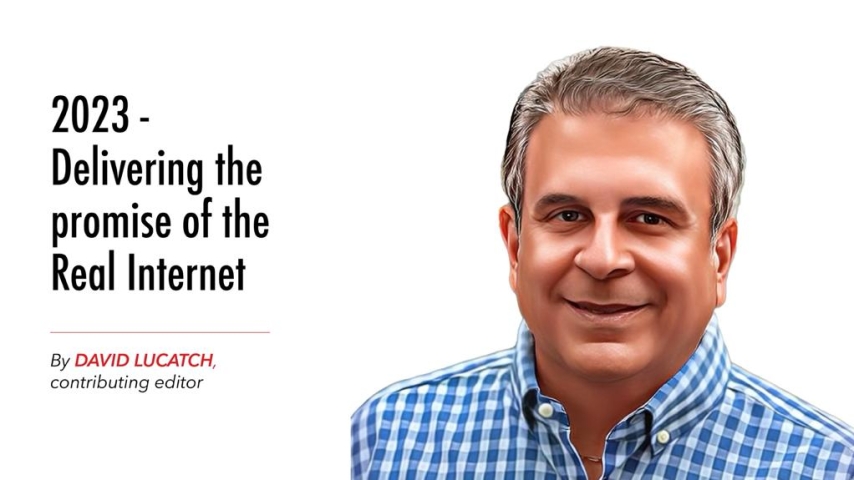
As we usher in a near year, resolutions and renewed commitments, our daily lives, and the technologies we use are also seeing the light of new possibilities.
When we review how we arrived here, we have to address our unfettered access to an infinite variety of information, entertainment, business, news, education, interactivities, and knowing what our friends, family, and colleagues are up to socially, is constantly at our fingertips. Yet this cornucopia of information has come at a high cost.
Since the launch of the commercial internet in the late 1990’s, users have continuously appealed for more, and although the demand for information and services has been veracious, we have learned that we can get most of what we want for free. But what does that really mean and where has it led us?
Early on, marketers learned very quickly that they could trade information, technology, and services for a user’s personal information and data, and that trade has been more valuable than gold. Data is truly portable and could be easily combined and analyzed to create even more valuable insight that an organisation could then use to deepen relationships with its users and create monetary opportunities for itself. Individuals cared little about who had the information and what they were doing with it, as long as they got something for free.
This made smart corporations very, very rich and there were little in the way of regulations for online privacy or data protection and organisations around the world expanded and exploited a user’s private and personal information and data as they saw fit.
Then along comes Web2 and the advent of social media and the opportunity to find out what a person was doing that moment, what they like, who they liked and what they were willing to tell you, give you, recommend, along with the opportunity to gather, process and use that data, exploded. This also came with a dark side, as a user could be who they said they were, or anyone else, good, or bad, have multiple and fake accounts, bots began to appear and so did online fraud in a big way. Users could say, generally, whatever they wanted, without retribution. Corporations who used these details grew exponentially as the quest for data and how to micromanage it, and extracting the maximum value, became paramount.
In 2015, that all started to change with the EU’s General Data Protection Regulation, or GDPR, as companies started to have immense responsibility for how, when and what they could do and were doing, with a user’s data, and users started to have rights as well. Around the same time, a emerging technologies began to unlock the potential of blockchain, beyond the minting of coins and tokens, and to use it to empower a new era of data management and compliance.
Computing power, communications, and our portable devices also became faster, smarter, and more immersive. A new Internet, the one talked about for years, started to take shape, and by 2022, many countries, states, and provinces had adopted consumer data rights legislation. The Metaverse, that promise of the fully immersive online experience, was finally on the horizon, giving rise to Web3 and the Owner Economy and the move towards responsibility and accountability blending our everyday real and virtual existences.
So, why do I think that 2023 will be the year of the “real” Internet? Well, first, I’m an eternal optimist having been in the emerging technology space for almost 40 years and worked within the financial services, entertainment, sports, business to business and retails industries helping a wide variety of small, mid-size and global organisations use technology and marketing to increase awareness, engagement, activation, and conversion. I’m also a big believer that individual users need to own, manage, and control their data and that it is one of the most valuable assets they have, and those that want to use it should provide tangible value and respect for its “temporary” use.
In my opinion, the Internet was not intended to promote bad actors or allow nefarious users to abdicate responsibility for their actions. I believe that the Internet needs to be an extension of our lives, an adjunct, and has always had the opportunity to create value for every person on this planet.
That brings us to what the real internet will become and why it is starting to emerge. As we move beyond simple social media and introduce new tools that allow users to manage and control their personal information and data, as well as proving that they are real while still maintaining a secure level anonymity with accountability, we create the opportunity to thwart bad actors, duplicate accounts, fakes, and bots and create higher levels of assurance for all participants in the ecosystem. We demand that everyone should be required to prove they are real and that we can all co-exist and be responsible for our actions, like we do in the real world, where we can instantly offer our individual Proof of Humanity. This corrects the “sins of the past” with Web1 and Web2 and creates a basis for clean data, user controls, good actors and the Metaverse.
2023 will be the year that the real Internet will emerge – the Metaverse. While the Metaverse will evolve over the years to become a completely immersive experience allowing us to work, play, learn, earn, entertain, create, and socialize, today’s Metaverse is just the beginning. We’re starting to see the emergence of interactive workspaces with presentation capabilities, virtual gaming and experiences and the blending of virtual commerce and ecommerce. All of these give rise, together with Proof of Humanity, to faster communications and new tools and services, like Pixel Streaming which require no downloads, and everything is active from the cloud, allowing mobile phones and other portable devices to have the capabilities of more powerful gaming devices and laptops, ushering new and exciting experiences, commerce, and collaboration on a truly global scale. What we’ve experienced online thus far will pale in comparison to the future of the Internet.

